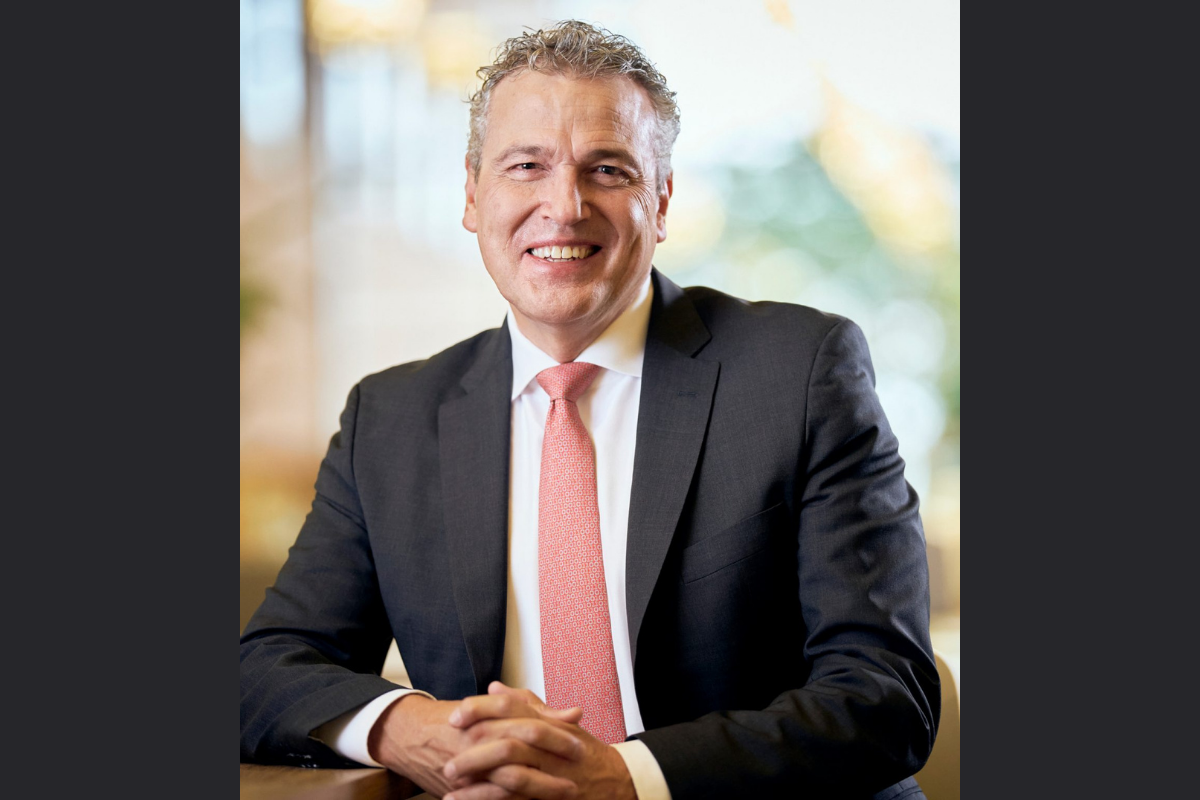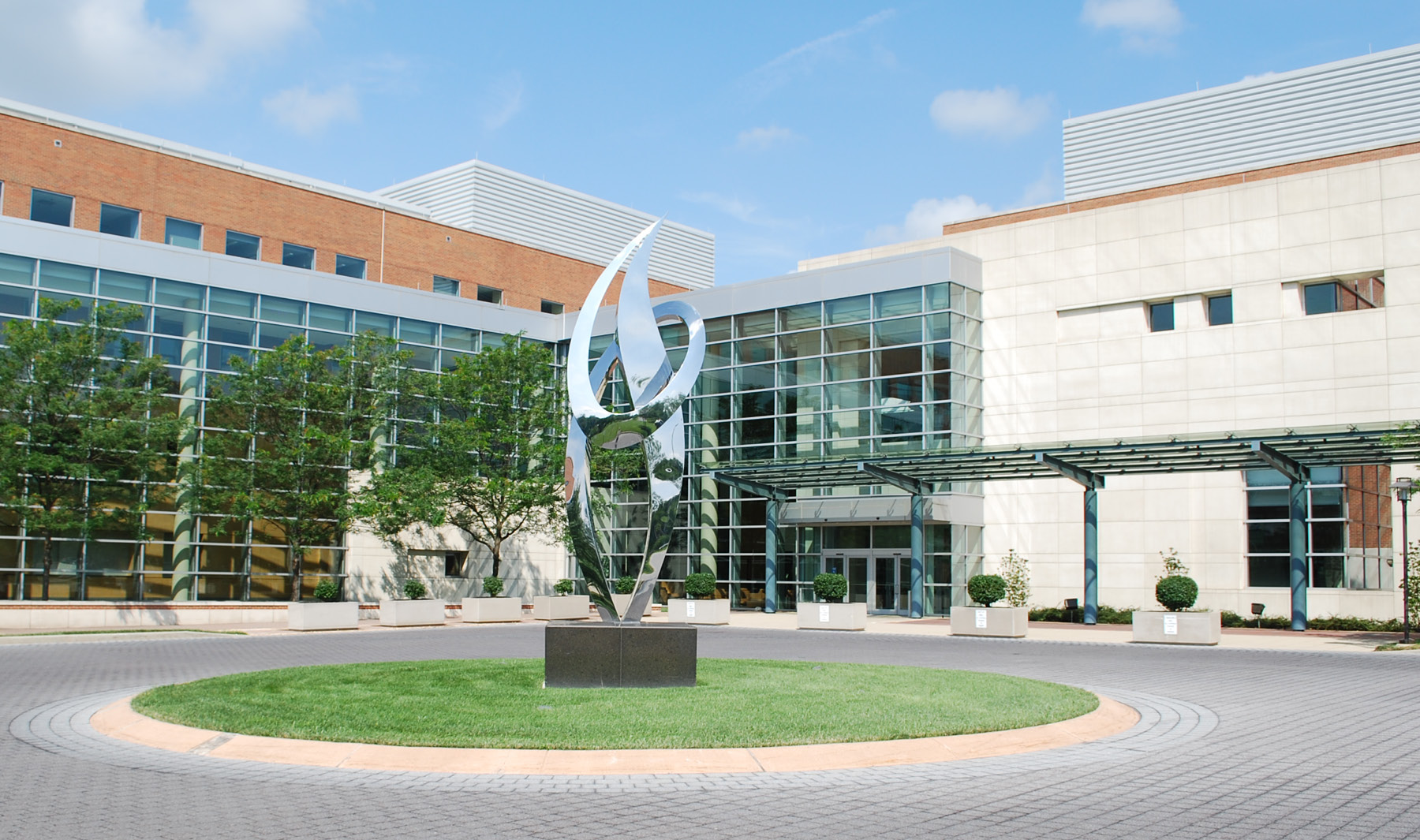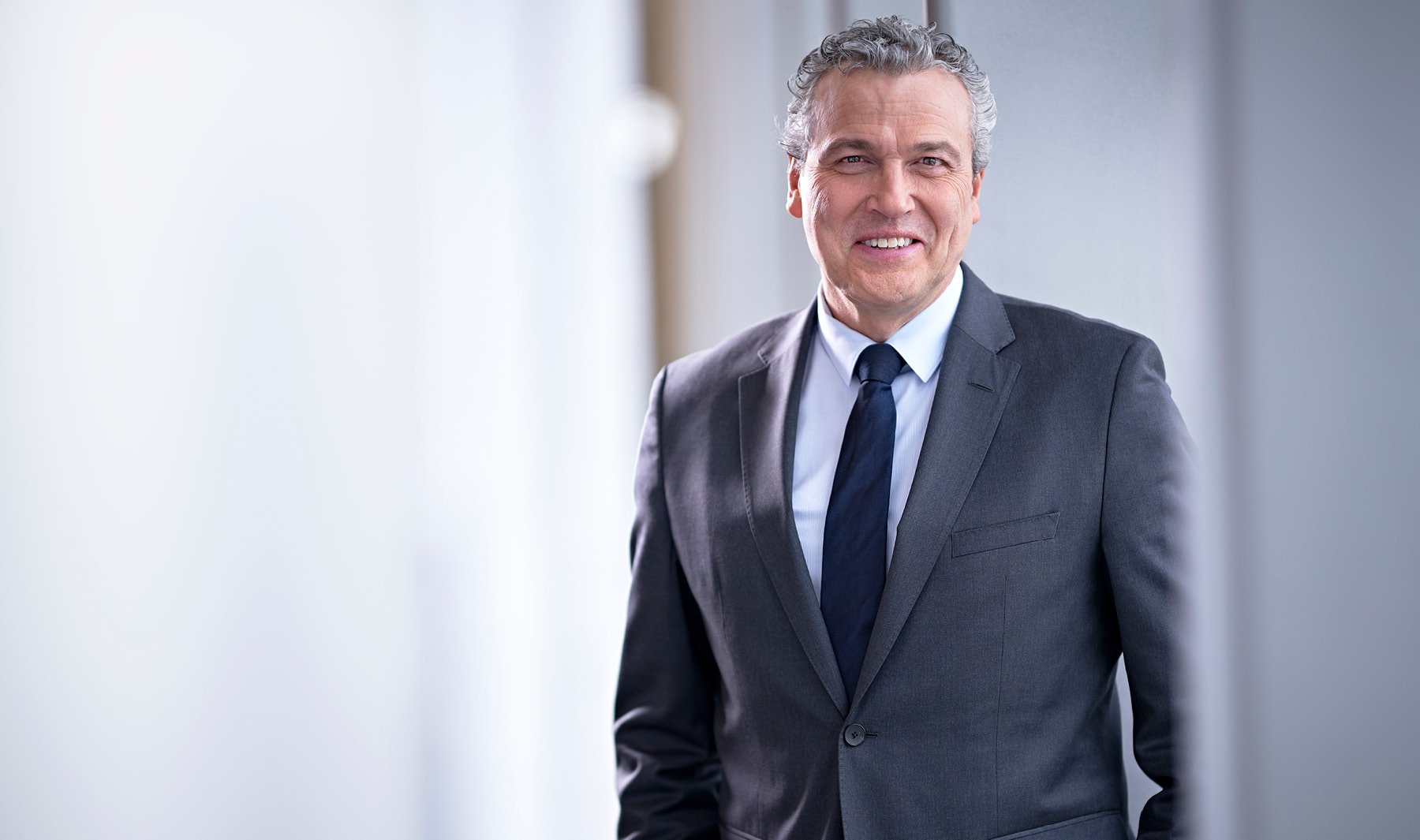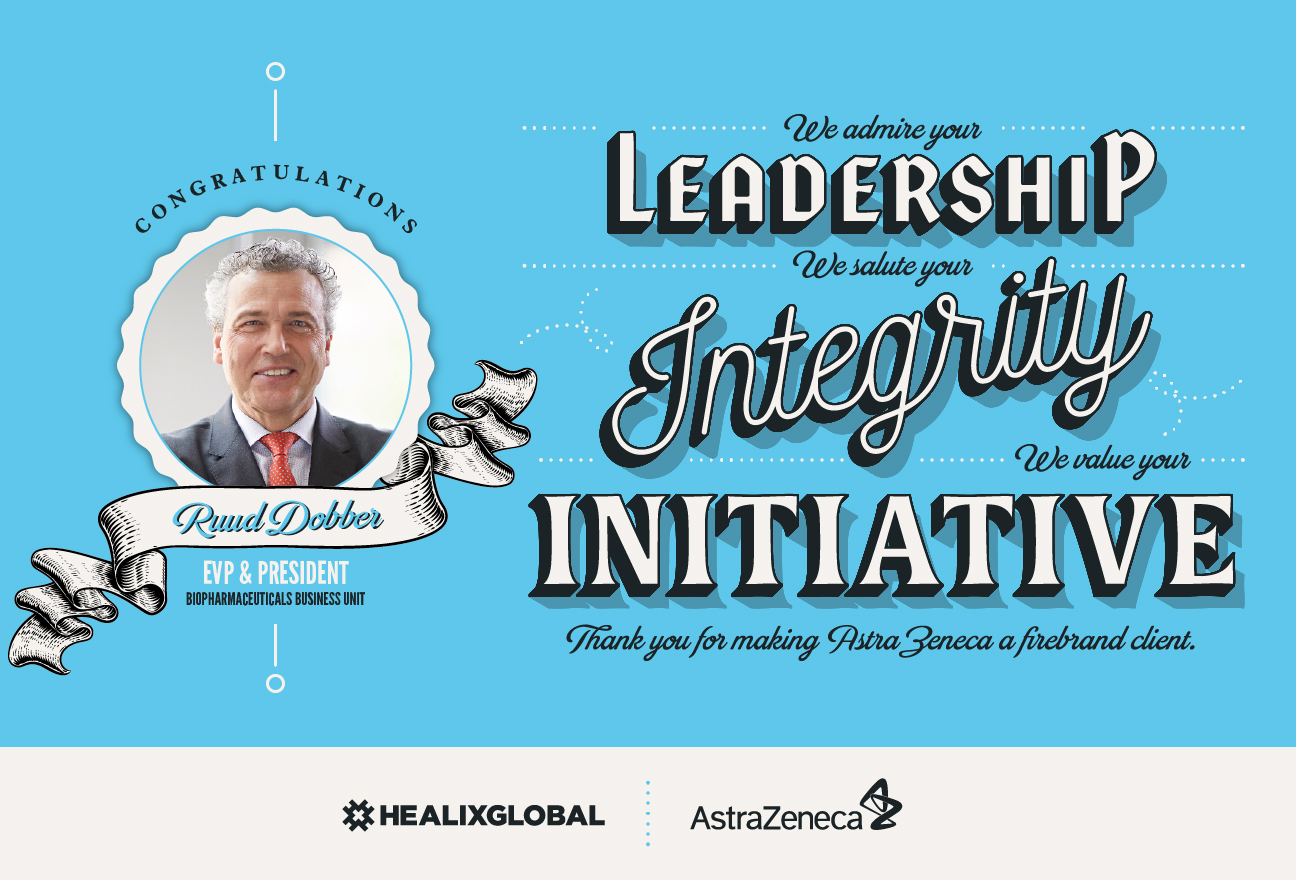It’s fair to say that in the past 18 months the name AstraZeneca has become very familiar to those outside the biopharma space, thanks to the company’s rapid development of a vaccine for COVID-19. It’s a fact AstraZeneca Executive Vice President and President of the BioPharmaceuticals Business Unit Ruud Dobber still looks back on with an element of wonder.

“We were never a big player in vaccines,” he says. “We have now supplied more than 2.6 billion doses of our vaccine to the world and saved more than one million people, and they are still with us. I think it is an enormous achievement.” Something few can deny, but when one looks at the culture of innovation at AstraZeneca, it’s easy to see how employees came together to face a challenge no-one could have anticipated.
And Ruud is keen that they build on the successes of recent years. “We have a clear ambition to transform the treatment for billions of people living with chronic diseases,” he explains. “I’m the first to admit that we have seen phenomenal progress in the last few decades around the world, but there’s still an enormous amount of room for improvements from a medicine perspective and also from an overall treatment perspective. We want to really make a change for people with multiple conditions.”
There are roughly seven thousand diagnosed rare diseases, but only solutions for five per cent.
And while the commitment to tackling some of the top killers in the world, such as respiratory disease chronic obstructive pulmonary disease, would seem a sensible business move, Ruud is keen to highlight the company’s commitment to the curing of rare diseases, predominately found in children, around the globe. “There are roughly seven thousand diagnosed rare diseases, but only solutions for five per cent,” he says. “I feel incredibly proud that, as an organization, we took the decision to work on the next generation of rare diseases.”
Innovation runs through Ruud’s veins. It’s the reason he remains passionate about his work. “I’m a scientist by background. I did a PhD back in the Netherlands, my home country, in the 90s,” he says. “I love science, I love innovation, I like to learn. And part of the learning exercise is that you need to stretch yourself and to move out of your comfort zone.” This is something he has personally experienced through his 24-year career with the company and an aspect he credits with elevating his career.
“Every time I thought I knew enough, there was a leader who picked me up and put me somewhere else, either in a different culture or a different business environment,” Ruud says. “Part of the learning exercise is that you need to stretch yourself and to move out of your comfort zone.”
Another important facet of Ruud’s character is his willingness to be humble and listen to those who may be able to offer a different perspective – as well as new knowledge and insight. “The biggest lesson for me is to be curious; don’t be afraid and embrace change. How beautiful is it that you can still learn? I’m still learning. Listen to young people – every year we bring 20 very bright young people into our organization. And those are my best meetings because I learn from them. I also learn from my children,” he explains.

If you are afraid to make a change in your organization or a change in the way you are working, you will not innovate yourself.
“If you are afraid to make a change in your organization or a change in the way you are working, you will not innovate yourself. It’s like when I was in the laboratory, we were always saying, ‘Push yourself, push the boundaries of science.’ The reward can be extremely high.”
Realizing that being a leader in industry doesn’t mean your way is the only way, means AstraZeneca is keen to work with smaller businesses too. “There’s so much innovation outside, every year I organize speed dating discussions with smart, small companies. That creates a level of creativity and also inspiration for our own people to do better and to work with those startup companies,” he says.
With this desire to listen, share and work together, it’s no surprise the company attracts a high caliber of candidates for positions across the business. “You need to have the very best people in your team who understand the science and understand the market dynamics.”
A dynamic that has undoubtedly changed in the past two years is our relationship with healthcare providers and the importance many of us place on good health. Ruud is not missing a beat when it comes to addressing the significant changes to patient/physician relationships and interactions due to the pandemic, where we saw online consultations become the norm. “There is not always the need to travel from one place to another place in the world or in the United States. Digital is no longer ‘nice to have’ – it is a ‘must have’,” he says.
With high profile projects looking into algorithms to predict patient futures and providing up-to-the-minute, relevant data to help healthcare providers make the right clinical decisions, digitization is a growth area AstraZeneca is taking seriously. But again, people remain at its heart, “Change is always scary for a lot of people. If you talk about digitization, automation, people are concerned primarily about how it affects their work. Whether there is still a need for them in the organization,” Ruud says. “You need to explain that we are not doing this to replace their job. We’re doing this in order to make it more meaningful, more impactful. And that takes time.

It is the wonderful, smart people around me that impresses me every day. If you could see the commitment, the passion, and what they would like to achieve, it gives me an enormous amount of energy.
“My purpose is to make us more impactful so that in a faster way, physicians and pharmacists and other healthcare providers are getting the data they deserve in order to make the right clinical decision for their patients.”
Even though AstraZeneca is a winner in the pandemic, Ruud is determined to take lessons and inspiration from the past couple of years and not become complacent. “I think COVID-19 has taught us one big lesson – without this industry, we would never be where we are today. Without this industry, vaccines would still be a dream, and now they are reality,” he says. “And I think we all need to be very proud that, in no time, a couple of companies took the challenges on board in order to focus themselves to get it done. It is the wonderful, smart people around me that impresses me every day. If you could see the commitment, the passion, and what they would like to achieve, it gives me an enormous amount of energy. And I am always saying it internally. I’m very privileged.”
Proudly supported by:




